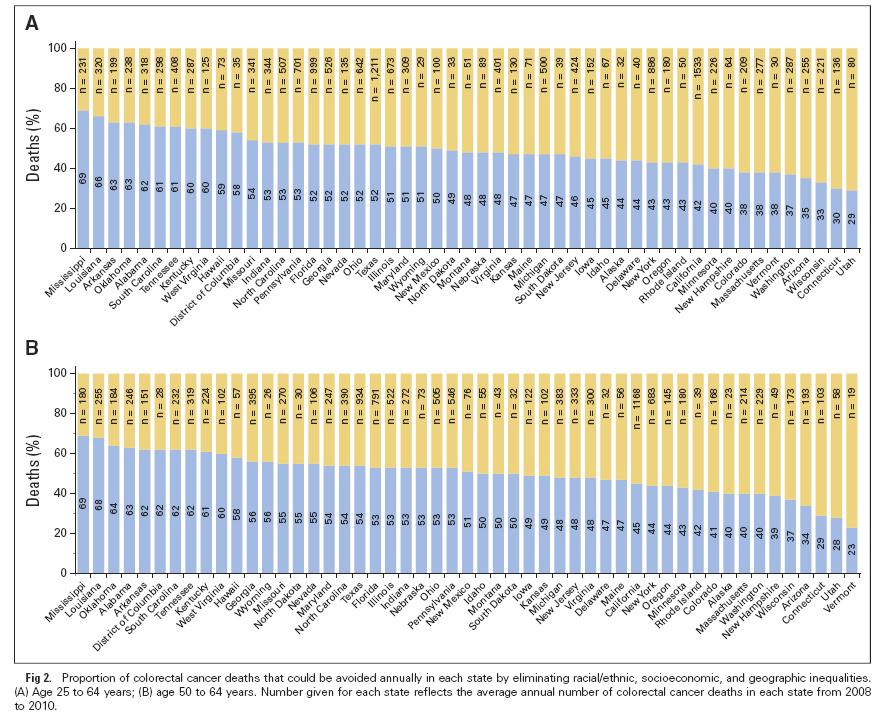The authors of this paper calculated age-standardized colorectal cancer death rates for three education categories by race/ethnicity and state among individuals age 25 to 64 years from 2008 through 2010.
They then calculated the proportion of premature death resulting from colorectal cancer that could potentially be averted in each state by applying the average death rate for the five states with the lowest rates among the most educated whites (Connecticut, North Dakota, Utah, Vermont, and Wisconsin) to all populations.
Education had a big effect for blacks and whites in almost all states, but the authors concluded that half the premature deaths resulting from colorectal cancer that occurred nationwide from 2008 through 2010, or 7,690 deaths annually, would have been avoided if everyone had experienced the lowest death rates of the most educated whites.
More premature deaths could have been avoided in southern states (60-70%) than in northern and western states (30-40%).
They then calculated the proportion of premature death resulting from colorectal cancer that could potentially be averted in each state by applying the average death rate for the five states with the lowest rates among the most educated whites (Connecticut, North Dakota, Utah, Vermont, and Wisconsin) to all populations.
Education had a big effect for blacks and whites in almost all states, but the authors concluded that half the premature deaths resulting from colorectal cancer that occurred nationwide from 2008 through 2010, or 7,690 deaths annually, would have been avoided if everyone had experienced the lowest death rates of the most educated whites.
More premature deaths could have been avoided in southern states (60-70%) than in northern and western states (30-40%).

 RSS Feed
RSS Feed